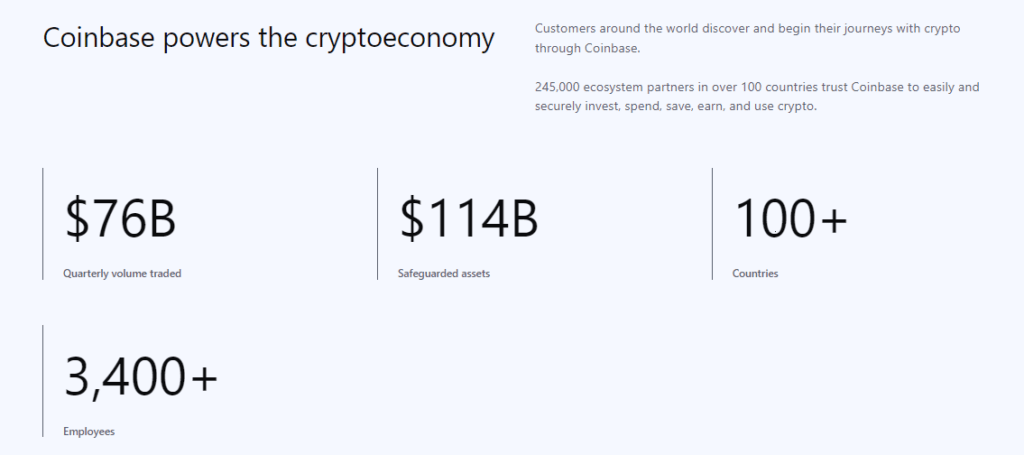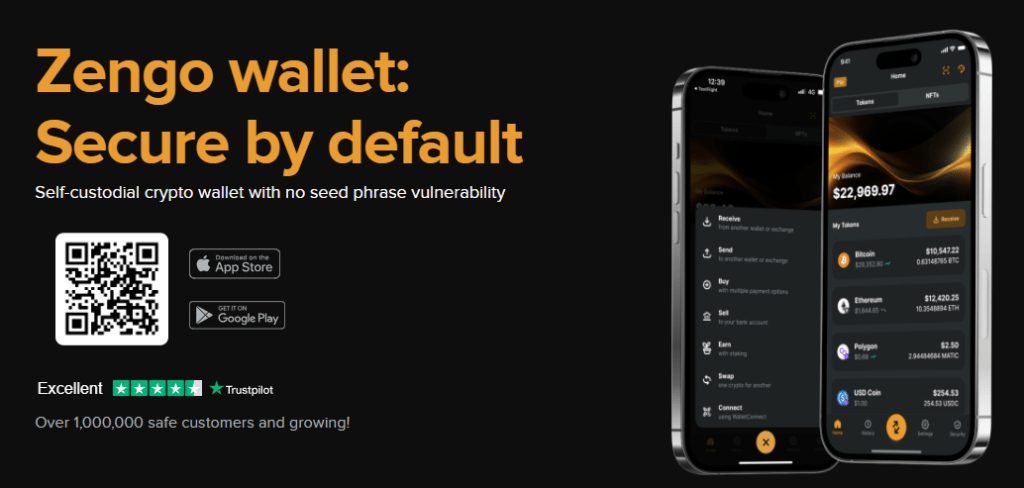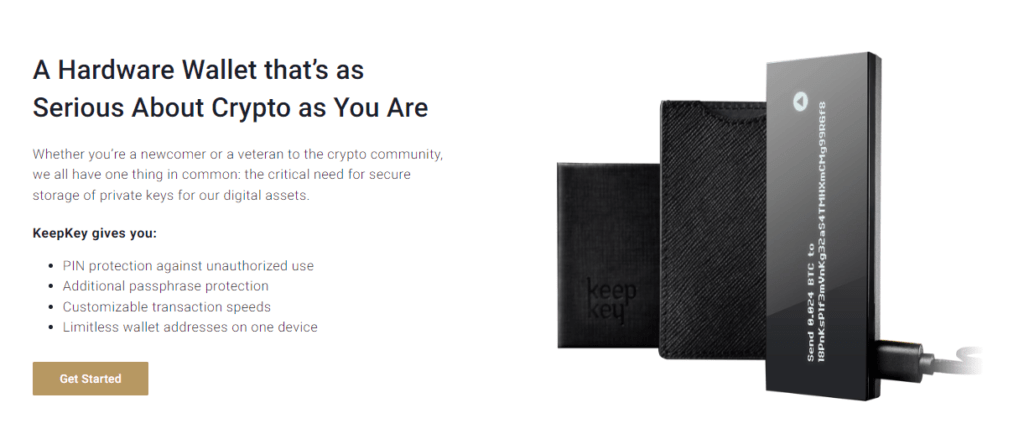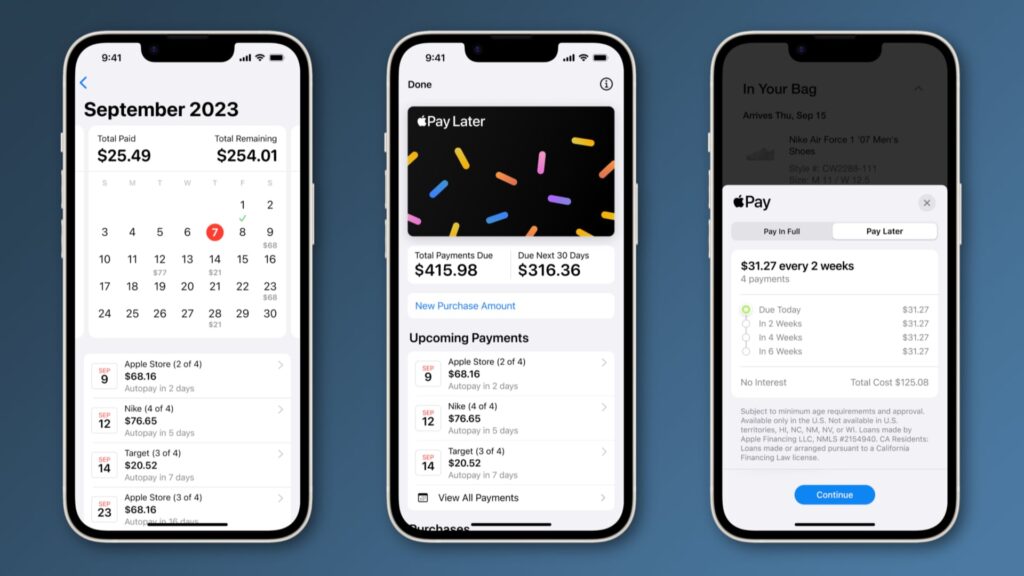Why Blockchain Wallets: In the ever-evolving world of cryptocurrency, choosing the right wallet is crucial for securely managing your digital assets. Whether you’re a beginner or an experienced investor, finding the best wallet that aligns with your needs is essential. In this guide, we’ll explore the top 10 cryptocurrency wallets for 2024, covering both software and hardware options to help you make an informed decision. Our focus keyword throughout this exploration will be “blockchain wallets.”
Table of Contents
- Coinbase Wallet: Best for Beginners
- MetaMask: Best for Ethereum
- ZenGo: Best for Easy Account Recovery
- Guarda: Best for Cryptocurrency Selection
- Crypto.com DeFi Wallet: Best for DeFi Staking
- Trust Wallet: Best for Binance and Binance.US Users
- Exodus: Best for Customer Support
- Ledger: Best Hardware Wallet for Hot Wallet Integration
- Trezor: Best Hardware Wallet for Security
- KeepKey: Best Hardware Wallet for Price
- What is a Crypto Wallet?
- How Does a Crypto Wallet Work?
- What Type of Wallet Should I Choose?
- What to Consider When Choosing a Wallet
- Conclusion
Coinbase Wallet: Best for Beginners

Coinbase Wallet is an excellent choice for beginners, offering a user-friendly mobile app and browser extension. With the ability to buy, transfer, and interact with decentralized finance (DeFi) protocols, Coinbase Wallet supports a vast array of cryptocurrencies. Its seamless integration with Coinbase ensures a smooth experience for users.
Price: Free
Supported Blockchains: Ethereum, Polygon, Bitcoin, Dogecoin, Litecoin, Stellar Lumens, Ripple, and Solana
MetaMask: Best for Ethereum

Ideal for Ethereum enthusiasts, MetaMask stands out with its intuitive mobile and browser extension wallet. Known for its easy-to-use interface, MetaMask is a popular choice for those exploring NFTs and DeFi protocols on the Ethereum blockchain.
Price: Free
Supported Blockchains: Ethereum, ERC-20 tokens, and Layer 2 solutions like Polygon
ZenGo: Best for Easy Account Recovery

ZenGo focuses on user-friendliness and security, offering easy account recovery through a unique feature: ‘mathematical secret shares.’ This ensures users can recover their wallets even if they lose access to private keys.
Price: Free
Supported Blockchains: Bitcoin, Ethereum, Dogecoin, and more
Guarda: Best for Cryptocurrency Selection

Guarda Wallet boasts versatility, supporting over 400,000 cryptocurrencies across desktop, mobile, and browsers. While not currently supporting NFTs, Guarda stands out for its extensive cryptocurrency selection.
Price: Free
Supported Blockchains: 50+ blockchains, including Bitcoin, Ethereum, Cardano, and Solana
Crypto.com DeFi Wallet: Best for DeFi Staking

Tailored for those venturing into decentralized finance, the Crypto.com DeFi Wallet integrates seamlessly with the Crypto.com exchange. This allows easy transfer between platforms and offers additional features like staking rewards and an Ethereum gas tracker.
Price: Free
Supported Blockchains: 30+ blockchains, including Ethereum, Bitcoin, and Crypto.com blockchain
Trust Wallet: Best for Binance and Binance.US Users

Developed by Binance, Trust Wallet provides interoperability with Binance and Binance.US, facilitating effortless trading and asset transfer between the exchange and the wallet.
Price: Free
Supported Blockchains: 70 supported blockchains, including Bitcoin, Ethereum, Solana, and Litecoin
Exodus: Best for Customer Support

Exodus caters to beginners with a user-friendly interface, offering support for over 300 cryptocurrencies. The wallet’s in-built exchange and responsive customer support make it an excellent choice for those seeking assistance.
Price: Free
Supported Cryptocurrencies: 364 supported cryptocurrencies, including Bitcoin, Ethereum, and Solana
The Best Hardware Wallets
Ledger: Best Hardware Wallet for Hot Wallet Integration

Ledger, one of the most popular hardware wallets, supports over 5,000 cryptocurrencies and seamlessly integrates with software wallets like MetaMask and Guarda. Its hot wallet integration enhances overall accessibility.
Price: $79 for the cheapest model
Supported Cryptocurrencies: Bitcoin, Ethereum, Binance Smart Chain, Cardano, Solana, and 5,000+ more cryptocurrencies
Trezor: Best Hardware Wallet for Security

Known for its security features, Trezor offers a cost-effective option for hardware wallets. Priced at $69 for the basic model, Trezor supports around 1,000 cryptocurrencies and ensures that private keys remain offline.
Price: $69 for the cheapest model
Supported Cryptocurrencies: Bitcoin, Ethereum, Binance Smart Chain, Cardano, Solana, and 1,000+ other cryptocurrencies
KeepKey: Best Hardware Wallet for Price

KeepKey stands out as an affordable hardware wallet option, frequently available for as low as $49. While supporting around 40 cryptocurrencies, it might not be the ideal choice for those seeking extensive altcoin storage.
Price: $49 for the cheapest model
Supported Cryptocurrencies: Bitcoin, Ethereum, Litecoin, and dozens more
What is a Crypto Wallet?
A cryptocurrency wallet is a secure tool that allows you to send, store, and receive digital currencies. Unlike exchanges, wallets grant exclusive access to private keys, ensuring the security of transactions.
How Does a Crypto Wallet Work?
Crypto wallets function through public and private keys. Public keys serve as account numbers, displaying your balance, while private keys grant access to your assets and enable transaction approvals.
What Type of Wallet Should I Choose?
Choosing between hot and cold wallets depends on your needs. Hot wallets, connected to the internet, are suitable for active trading and DeFi. Cold wallets hardware devices storing keys offline prioritize security.
What to Consider When Choosing a Wallet
Consider the reputation, purpose, and supported blockchains when selecting a wallet. A solid reputation safeguards against scams, while understanding your purpose aids in choosing the right wallet type. Checking supported blockchains ensures compatibility with your assets.
Conclusion
Selecting the best cryptocurrency wallet involves evaluating your preferences and needs. Whether you opt for a software wallet like Coinbase or a hardware wallet like Ledger, prioritizing security and functionality is key. Stay informed, consider your options, and secure your digital assets with the right blockchain wallet for a seamless crypto experience in 2024.


